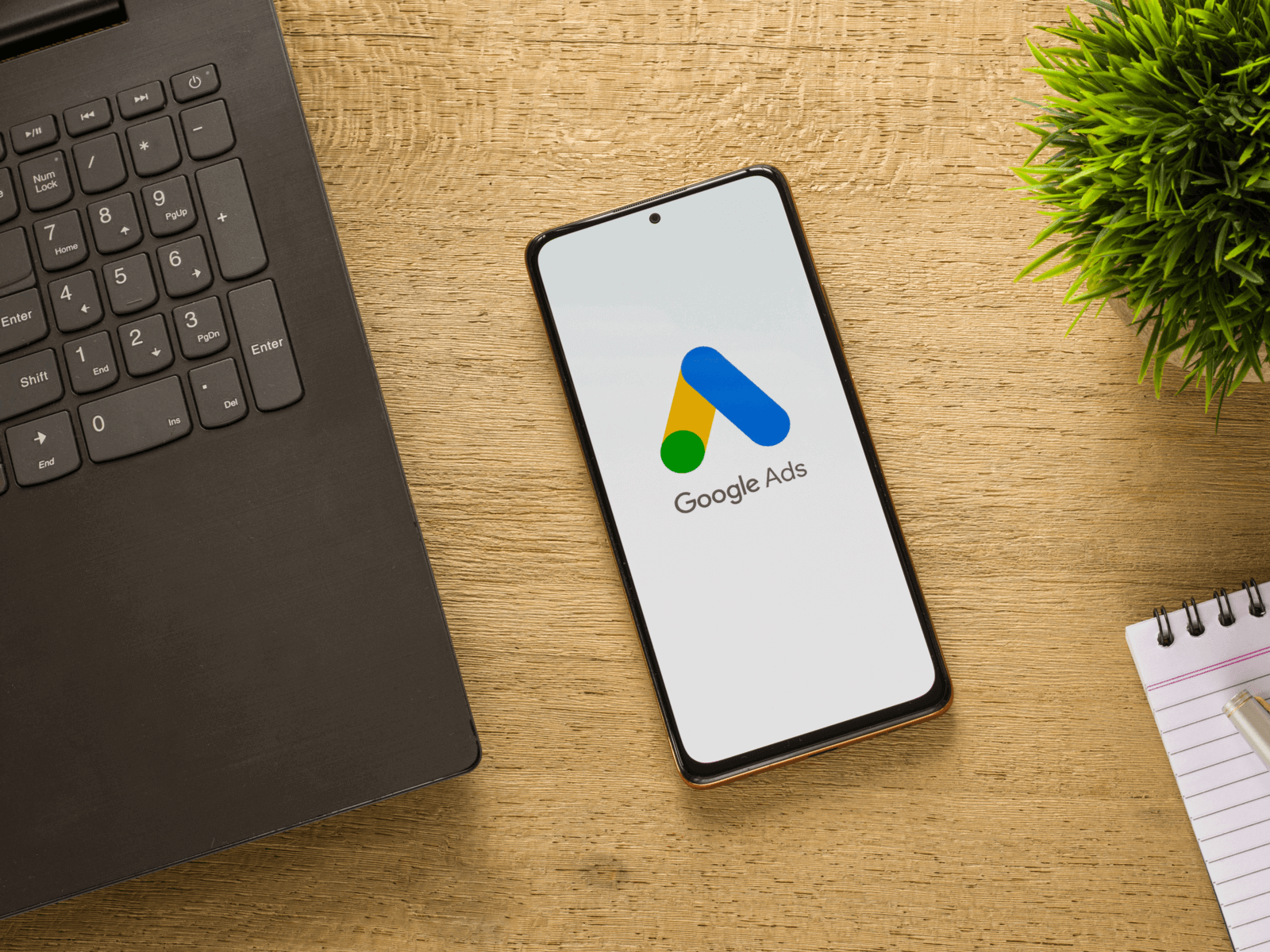TOP 3 challenges for targeting doctors with Google Ads

Approximately 7% of all Google searches are health-related [1]. This number also includes searches generated by digital doctors.
In fact, 70% of all healthcare professionals today are digitally-savvy, according to Sermo [2]. They search for medical news, join social media platforms, connect with other experts, educate, and train. Given that, it would be more than a loss not to take advantage of making your website visible online with the help of paid advertising.
Google Ads is an excellent up-to-date tool that provides you with an unprecedented opportunity to promote your services wherever you want and to target whomever you need. However, success doesn’t come without challenges.
Targeting Healthcare Professionals with Google Ads is a demanding task, considering the selection of appropriate audience categories and the ad platform’s regulations. Have you heard about the Sensitive Events Policy or Sensitive Interest Categories? These are the strict Google rules that you cannot cross if you don’t want to get your ad blocked or your account suspended.
To entirely benefit from digital advertising with Google Ads, you’re obligated to know all the policy limitations that concern your field. And we’re here to help you. Get you ready – it’s high time to learn all about the considerable challenges presented by Google Ads.
What happens if you violate Google Ads policy
With Google paid advertising, you can quickly reach more Healthcare Professionals than you would be able to organically. But the profits do not stop here.
Google Ads allows you to customize your ad to the most relevant format, target your audience, and choose the area to advertise. Staying local or advertising global, you can provide doctors services and products they are looking for, measure your results, and ultimately, get your marketing job well done.
However, each digital advertising system has its own set of rules and regulations to ensure the best possible user experience. Some rules are more explicit and easy to follow. Under the category “Prohibited Content” you cannot advertise goods or services universally forbidden by international law. But others are somewhat complicated. What is restricted by Google Ads, and how? What are the personalized advertising limitations?

Better know them than not because validating Google’s rules might lead to Ad disapproval, a blocked Ad Campaign, or, in the worst-case scenario, to your Account Suspension. Let’s have a look at the Google Ads restrictions and learn how to reach Healthcare Professionals faultlessly.
1. Data Sensitiveness and Healthcare Professionals
In order to constantly improve your advertising relevance and provide the target with more suitable content, Google's Personalized Advertising allows you to display your target ads based on their search history and remarketing lists. Although it sounds perfect, there are a few challenges that every healthcare marketer has to face.
As users search for a diversity of goods on the Internet, asking even the most personal questions, Google distinguishes Sensitive Interest Categories that you can’t use to target ads and promote your products.
What is the Sensitive Interest Category?

Sensitive data involves information regarded as highly private or concerned endeavors that nobody wants to influence through ads. Based on this, Google Ads recognizes Google Interest Categories that include legal restrictions, identity and belief, sexual interests, and personal hardships.
Given that the latter category comprises health, negative financial status, and commission of a crime, it might be the most vulnerable while targeting doctors, thus cannot be overlooked. And Google lists more precise guidelines for each type:
#1 Health in personalized advertising:
#2 Negative financial status in personalized advertising:
#3 Commission of a crime in personalized advertising:
How does it concern the Healthcare sector? According to Google, you’re not allowed to target users based on any personal hardships. Moreover, when you are falling within any category, you can’t use the following Advertiser-Curated Audiences features:

Hence, you’re not allowed to use the most valued tools in modern-day marketing. Disabling remarketing lists means that there’s no second chance to encourage users to once more visit your website. Thus, your first attempt, i.e. when a user visits your website for the first time, has to be excellent.

Let us consider targeting Healthcare Professionals as an example: you can’t target a doctor that searched for legal advice concerning the accusation of a crime in the medical procedure. Even though it might be tempting to employ information that may be beneficial for your business, Google prohibits that practice in order to protect its users. Given that the data might be stored for an unlimited period, no medical practitioner would want his advertisements to appear in relation to previous searches. Likewise, no medical doctor would tolerate if his personal problems related to health or finance would fall victim to advertisements. Nevertheless, when an HCP searches for legal advice and enters your website, your role is to provide them with the best experience possible.
Additionally, you can still use Predefined Google Audiences, which do not include sensitive user signals. So you’re able to employ features connected to demographics:
Thus, when you’re not allowed to use tools that let you customize your search ads campaign for people who have previously visited your site (remarketing lists), you must take maximum advantage of other features offered by Google Ads. When it’s forbidden to target users based on the category “doctors struggling with accusations of a crime during the medical procedure”, your Google Ads campaigns have to be perfectly planned, prepared and tailored to your target audiences. While using Predefined Google Audiences, it's paramount to get to know your audience and perfectly understand their needs, behavior, and communication styles. To successfully do that, you need professionals with extensive expertise in marketing and communication with Healthcare Professionals.

2. The perils of targeting based on COVID-19
With the COVID-19 situation constantly changing, it is tempting to advertise your products and services depending on the current phase of the pandemic (even if the disease peak has decreased). As the “coronavirus” was a top search term in 2020 [4], it hasn’t significantly changed in 2021, and 2022 and it is still an online buzzword.
Given the influence of health crises on our lives, Google concentrated on monitoring the online circulation of covid-related data. In June 2021, it imposed Search Quality Evaluator Guidelines that improved the combat against the vaccine misinformation that has been spreading since the pandemic began. Google’s Guidelines concentrate primarily on evaluating Expertise, Authoritativeness, and Trustworthiness (E-A-T), claiming that a well-ranked website should rely on extensive medical expertise or accreditation and contain factual content that illuminates the complex topic. Clearly, covid-related Google upgrades haven’t bypassed Google Ads Policy.
Sensitive Events
Google Ads distinguishes the Inappropriate Content category that includes Sensitive Events Policy. According to Google, you cannot run ads that:
As you have probably guessed, COVID-19 falls within the scope of this definition..
Since March 2020, Google has recognized coronavirus as a sensitive event, aiming to protect the good of global health. Since then, it has been imposing policy updates on an ongoing basis. In April 2021, Google enabled permissible personalized ads content, including information about vaccines promoted by a limited number of organizations. In July of the same year, it has expanded this access for recognized and official government ministries, departments, agencies, or offices, albeit it hasn’t included the rest of the advertisers.
To recapitulate, you’re not allowed to employ Personalized advertising related to COVID-19. However, Google has announced the gradual removal of restrictions, so stay up-to-date with the recent updates (last update: 03.02.2022). Moreover, as mentioned above, it continues to prohibit personalization based on personal health content (Sensitive Interest Categories), which includes content associated with personal health information or status [6].
Thus, given the consequences, don’t advertise your healthcare business by referring to COVID-19. Neither use pandemic-related keywords nor personalize your ad's message to the sensitive event. Putting it simply, it’s more than likely that the headline “Are you more exposed to COVID during the medical practice?” won’t be acknowledged by Google Ads as consistent with the Policy.
Instead, emphasize in your message that you’re communicating with Healthcare Professionals. Use specialistic language and combine it with a human-level message. Rely on the high quality medical content creation that will lend credibility to your ads and encourage doctors to your business.

3. Display and Search - differences and challenges
Display Campaigns
While Sensitive Interest Categories and Sensitive Events are a significant hindrance for managing Google Ads campaigns for Healthcare, it is vital to mention that they are generally applicable for Display Campaigns. Following Google definition:

With Display Campaigns, you can find the best performing audience segments that include potential customers with the highest likelihood to help you meet your conversion goals. Google finds them through the employment of the data, albeit, as we’ve already mentioned, with the exclusion of sensitive information. Display Campaigns may be highly beneficial for your business, but you need to start with learning how to optimize your ads to reach your preferred customers. And let us forewarn you that you may face some thorny problems with choosing appropriate audience categories whilst targeting.
For optimizing Display Ads, you can either use Predefined Google Audiences or Advertiser-Curated Audiences that include remarketing lists.
As mentioned, falling into the Sensitive Interest Categories results in getting your marketing lists disabled. That is why we advocate the use of Predefined Google Audiences and careful selection of appropriate audience categories. And here comes the hard part when you must decide which ones to pick as you cannot simply select “Healthcare Professionals”.
The second case when you cannot use Remarketing Lists concerns the audience itself. For instance, when your corporate website offers medical devices for doctors, nurses, paramedics, as well as patients, then consequently, your remarketing list contains all of them. Thus, you cannot use this list in order to reach out to Healthcare Professionals only as long as it includes non-HCPs. Likewise, you’re disabled to use the Similar Audiences tool, because analogously, these would also include non-doctors.
A viable solution - Search Campaigns
The solution that you can take up both in the case of difficulties with optimizing targeting and disabling Advertiser-Curated Audiences is Search Campaigns. Next to remarketing lists, it is the most promising solution to efficiently reach the target group you’ve wanted. To put it simply, Search Ads enable you to reach people while they’re searching on Google for the products and services you offer. As a result, you’re hitting these recipients that are actively looking for your product, but also you’re able to advertise without any restrictions connected to Sensitive Categories.

For example, you’re allowed to display Health Insurance for Doctors ad while HCPs are searching for Health Insurance that protects them from the alleged accusations of a crime in the medical procedure. Given that, you don't take advantage of anyone’s poor situation nor remind them about the hurtful event but offer a solution at the point of time when they urgently need it.

Search Campaigns may undoubtedly be beneficial for your Healthcare business, albeit, at first, you have to make sure that anyone will look for particular services you offer. Revolutionary products that no one searches for constitute an exception from this rule. For example, if you want to advertise a new innovative medical device for the private medical offices that nobody has heard about, there is a minimal chance that your Search Ad will be displayed a number of times. However, it is manageable, and that would be a great opportunity to challenge your acquaintance with Healthcare Professionals’ needs and behavior.
Thus, when you aim to promote your revolutionary product to Healthcare Professionals through Search Campaigns, it is crucial to take a step back and ask: “Why do I want to reach doctors?”, “What information do I want to provide?” and “In what way is my product beneficial for doctors?”. In the beginning, it is not very probable that people will be searching for your revolutionary product. However, you have the opportunity to increase the likelihood that potential clients will chance upon it when searching for e.g. innovative medical equipment. And that would be an excellent chance for you to capitalize on.

Rely on professionals
Paid advertising, such as Google Ads, provides you with a unique opportunity to attract Healthcare Professionals, generate new clients, and boost your sales. Albeit not without a set of challenges that you have to face. To prevent getting your ad disapproved or your account suspended, diligently follow the restrictions and limitations we’ve talked about. Obey the Sensitive Interest Categories. Keep in mind the Sensitive Events and regularly check COVID-19 Policy updates. Consider the benefits and perils that may bring you Display and Search Campaigns.
Google Ads is a great tool, but you have to know how to use it wisely. As it is quite easy to get lost in the plethora of restrictions and limitations paid advertising imposes, you need professionals. Improve your communication with Healthcare Professionals, optimize your Google Ads campaigns, and make your business grow. Let us help you improve your digital advertising for the sake of your success. Shall we start?
References:
[1] nytLicencing, 22 Healthcare Marketing Statistics To Know in 2022, https://nytlicensing.com/latest/trends/healthcare-marketing-stats/ [last accessed: 07.02.2022].
[2] Advertising Policies Help, Personalized Advertising, https://support.google.com/adspolicy/answer/143465?hl=en [last accessed: 07.02.2022].
[3] World Economic Forum, Coronavirus, and sourdough - this is what we searched for online in 2020, https://www.weforum.org/agenda/2020/12/google-most-popular-search-2020/ [last accessed: 07.02.2022].
[4] Advertising Policies Help, Inappropriate content, https://support.google.com/adspolicy/answer/6015406?hl=en [last accessed: 07.02.2022].
[5] Google Ads Help, Coronavirus disease (COVID-19) Google Ads policy updates, https://support.google.com/google-ads/answer/9811449?hl=en [last accessed: 07.02.2022].
[6] Google Ads Help, Display Campaigns, https://support.google.com/google-ads/answer/2404190?hl=en&ref_topic=10289774 [last accessed: 07.02.2022].
[7] Google Ads Help, Create ads and campaigns, https://support.google.com/google-ads/answer/2567043 [last accessed: 07.02.2022].
 Medical Content Creation
Medical Content Creation
 Digital Product Development
Digital Product Development
 Growth Marketing
Growth Marketing



